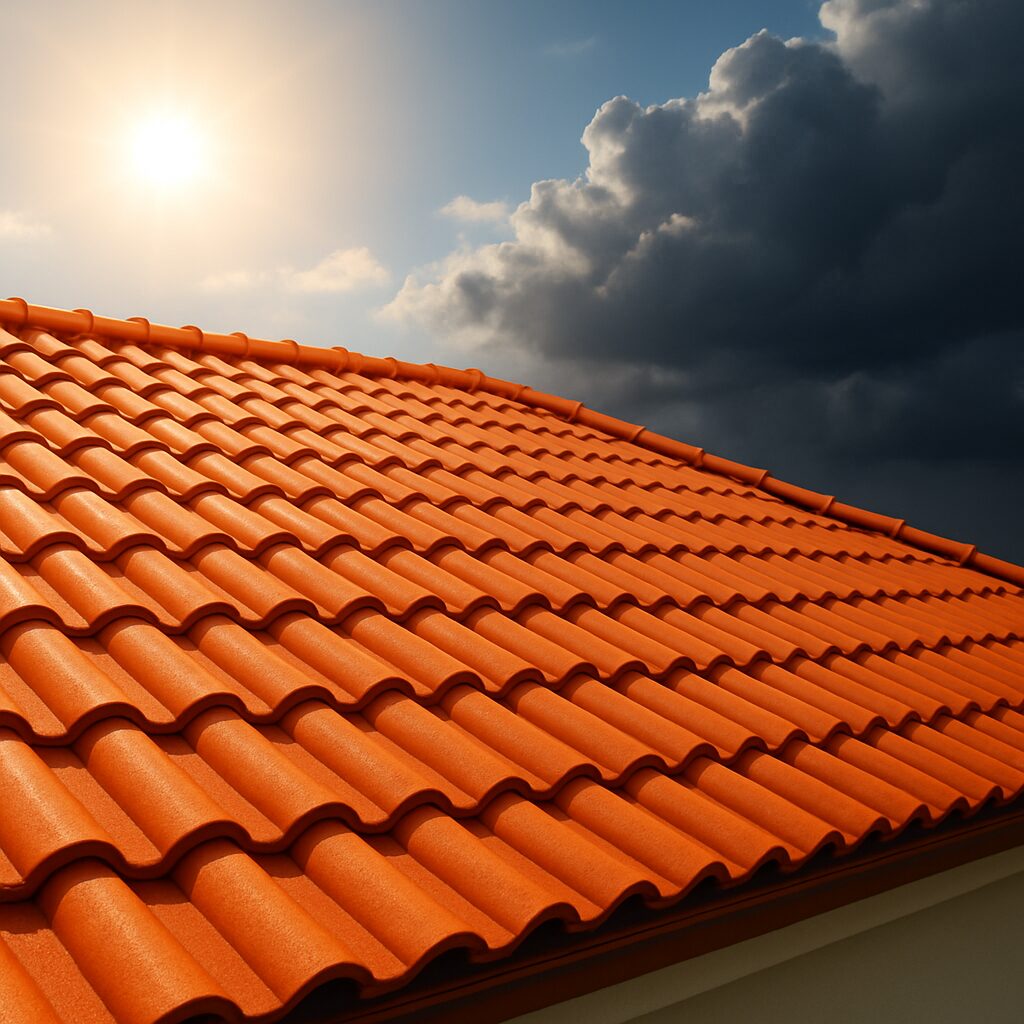Understanding the Florida roof lifespan is essential for homeowners across the Sunshine State. Factors like intense sun, high humidity, and hurricane-season storms all affect durability. Whether you’re considering a new installation or maintaining an existing one, knowing the roof’s lifespan helps you plan effectively.

The Florida roofing industry sees unique challenges compared to other states. A Florida roof often faces more wear from UV rays, salt air, and heavy rain. This means that the lifespan of Florida roofs can differ greatly from those in milder climates. Regular inspections, proper ventilation, and quality materials are key to extending your Florida roof.
Why the Florida Roof Lifespan Varies
In Florida, the climate is both beautiful and tough on roofs. The Florida roof lifespan depends heavily on the type of material you choose. Asphalt shingles, metal roofing, clay tiles, and flat roofing systems each perform differently under Florida’s conditions.
Sunlight is one of the biggest factors affecting a Florida roof. UV rays can dry out shingles, causing cracks over time. Constant exposure shortens the overall roof lifespan unless the materials are designed to handle extreme heat.
Average Lifespan by Roof Type in Florida
Each roofing material has its strengths and weaknesses in Florida’s climate:
- Asphalt Shingles: Usually last 12–20 years in Florida. Heat and storms reduce longevity.
- Metal Roofs: Can last 40–50 years with proper care. They resist heat and wind well.
- Clay or Concrete Tile Roofs: Often last 50+ years, but underlayment may need earlier replacement.
- Flat Roofs: Typically last 10–15 years in Florida due to water pooling and UV exposure.
Understanding these numbers helps you predict your Florida roof lifespan and budget for future work.
Climate Challenges That Affect Roof Lifespan
Florida’s coastal and inland areas present different threats to a Florida roof. On the coast, salt in the air can corrode certain roofing materials. Inland, heavy rain and humidity can promote mold growth.
Hurricane season is another key factor. Even if a roof survives a storm, wind-driven rain and debris can weaken its structure. The Florida roofing industry often recommends post-storm inspections to catch hidden damage before it shortens your roof lifespan.
Signs Your Florida Roof Is Nearing the End
Knowing when your Florida roof lifespan is almost over can save you money and prevent bigger problems. Common warning signs include:
- Shingles curling, cracking, or missing.
- Frequent leaks or water stains inside your home.
- Sagging rooflines or soft spots when walked on.
- Excessive granules in gutters from asphalt shingles.
If you notice any of these, call a trusted Florida roofing professional like Roof Fix to assess the situation.
How to Extend Your Florida Roof Lifespan
The right maintenance can add years to your Florida roof. Start with regular inspections, ideally twice a year and after major storms. Cleaning gutters, trimming nearby trees, and repairing minor damage quickly will all help.
Proper ventilation is another key factor. Florida’s heat can build up in attics, causing materials to deteriorate faster. Good airflow reduces moisture buildup and helps regulate temperature.
Choosing the right materials also makes a big difference. Some products are engineered specifically for hot, humid, and storm-prone climates. Investing in these can greatly improve your roof lifespan.
When to Repair vs. Replace Your Roof
Deciding whether to repair or replace depends on the condition and the remaining Florida roof lifespan. Minor issues like a few missing shingles or small leaks may only require repairs. However, if the roof is close to its expected lifespan, replacement is often the smarter investment.
Another factor is energy efficiency. Newer roofing materials often reflect more sunlight, reducing cooling costs. This is especially beneficial in Florida’s long, hot summers.
The Role of Professional Roofing Services
Hiring a licensed Florida roofing contractor is essential for accurate inspections and quality work. Professionals know how to spot early signs of trouble and recommend the best solutions for Florida’s climate.
At Roof Fix, we specialize in helping homeowners protect their investment. Our team understands the unique weather challenges and offers solutions that extend your Florida roof lifespan while improving your home’s curb appeal.
Cost Factors in Roof Replacement
The cost of replacing a Florida roof depends on materials, size, and complexity. While higher-quality products may cost more upfront, they often save money over time by lasting longer.
Labor quality also matters. Poor installation can shorten even the best roof lifespan. That’s why choosing an experienced, reputable contractor is critical.
Protecting Your Florida Roof Investment
Your roof is one of the largest investments in your home. Knowing the expected Florida roof lifespan helps you plan ahead and avoid sudden expenses. By combining quality materials, professional installation, and regular care, you can enjoy a durable, attractive roof for many years.
Roof Fix is here to help homeowners across Florida and surrounding cities get the most out of their roofs. Whether you need repairs, maintenance, or a complete replacement, our team ensures your home is protected year-round.
Florida Roof Lifespan Varies
Florida roof lifespan varies by material, maintenance, and weather exposure. While Florida’s climate is challenging, proactive care and quality installation can significantly extend your roof’s life. Partnering with a trusted Florida roofing expert like Roof Fix ensures your roof stays strong and beautiful for decades.
